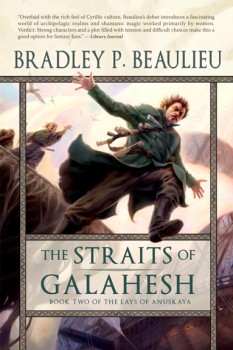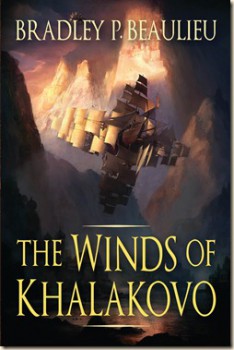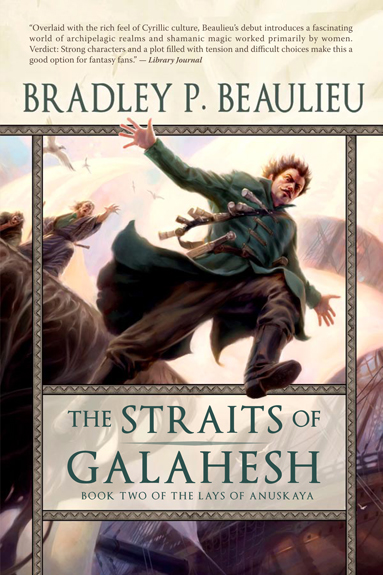 Over the past year, and as I prepare for the release of my second book, The Straits of Galahesh, I’ve been interviewed a number of times. I’m often asked about the process of writing and how I cut my teeth as a writer. I went fairly “workshop heavy,” and I thought this would make for an interesting discussion for those who are just getting into writing.
Over the past year, and as I prepare for the release of my second book, The Straits of Galahesh, I’ve been interviewed a number of times. I’m often asked about the process of writing and how I cut my teeth as a writer. I went fairly “workshop heavy,” and I thought this would make for an interesting discussion for those who are just getting into writing.
I started workshopping not with a local group (I was traveling too much for that), but with an online community—Critters, to be specific. After a few months with Critters I moved on to the Online Writing Workshop, which worked very well for me for years. In terms of instructor-led workshops, I’ve been to Viable Paradise, Writers of the Future, Orson Scott Card’s Literary Bootcamp, and Clarion. I took a bit of a break after Clarion, but then attended Starry Heaven I and II in Flagstaff, AZ, a peer-to-peer workshop run by S.K. Castle that was modeled off of Charlie Finlay’s Blue Heaven. I enjoyed those so much I started Wellspring, another Blue Heaven offspring. I ran the first last summer in Lake Geneva, WI, and I’m running the second this coming summer, just before WorldCon in Chicago.
If it wasn’t obvious from that list, I strongly recommend workshopping. If you come with the right attitude and the right expectations, it will take your writing much farther than you could have brought it on your own. The greatest strength of workshopping, in my opinion, is the wealth of knowledge that others will bring to the table, things your own set of experiences and knowledge haven’t led you to.
Strangely, when you workshop you’ll find that you’ll gain insight from what other writers find in your work, but you’ll soon learn that you get as much benefit or more from critiquing work that others have also critiqued. You won’t be working with your own material, where you will inevitably have blind spots. You’ll be working as a first reader, as will the other writers, and it’s in comparing how well (or not) you found issues in the writing that you’ll learn. And so, pay close attention to what others have said about work you’ve also critiqued. See what you missed and then start taking notes. Identify your blind spots and then create stories that expose those weaknesses. Actively work to strengthen those muscles, and soon you’ll find them becoming strengths, or at least not liabilities. What I said about experimenting earlier? This is why you experiment. To become stronger in your craft with targeted exercises.
In these early days, enter with an open mind and an open heart. Learn from the other writers. Try not to get defensive. Absorb. And for the love of all that is good, experiment. You may want to write a particular type of fiction—for me it was epic fantasy—by try other things on for size. It will only help you as you progress.
…
Read More Read More

 The Winds of Khalakovo
The Winds of Khalakovo
